Nigeria, a federal republic in West Africa, bordering Benin in the west, Chad and Cameroon in the east, and Niger in the north. Its coast in the south lies on the Gulf of Guinea in the Atlantic Ocean. It comprises 36 states and the Federal Capital Territory, Abuja. Nigeria is officially a democratic secular country.
Nigeria
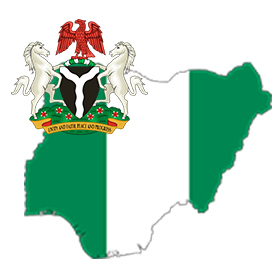
Location
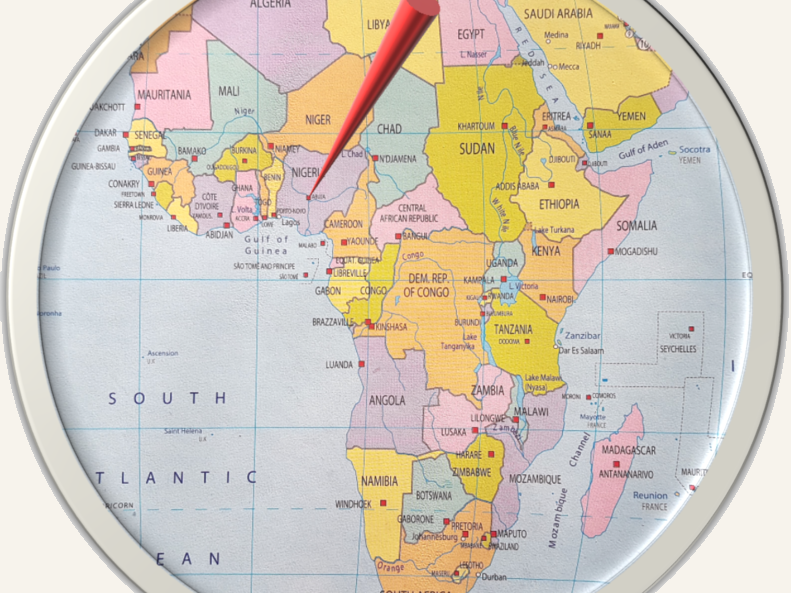
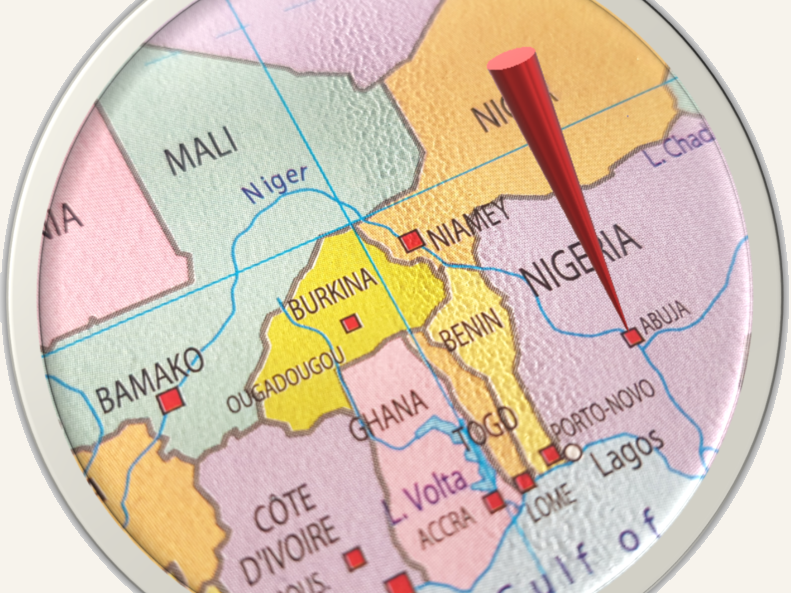
Nigeria is located in western Africa on the Gulf of Guinea with a total area of 923,768 km2 (356,669 sq mi) and lies between latitudes 4° and 14°N, and longitudes 2° and 15°E.
Vegetation and Clime


The vegetation types in Nigeria are the rainforest and savanna. Everything in between the far south and the far north is savannah (insignificant tree cover, with grasses and flowers located between trees). Rainfall is more limited, to between 500 and 1,500 millimetres (20 and 60 in) per year. The savannah zone's three categories are Guinean forest-savanna mosaic, Sudan savannah, and Sahel savannah. Guinean forest-savanna mosaic is plains of tall grass interrupted by trees. Sudan savannah is similar but with shorter grasses and shorter trees. Sahel savannah consists of patches of grass and sand, found in the northeast. In the Sahel region, rain is less than 500 millimetres (20 in) per year and the Sahara Desert is encroaching.
Religion
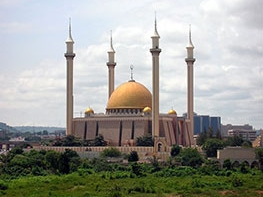
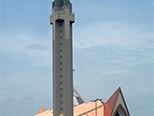
Nigeria is a religiously diverse society, with Islam and Christianity being the most widely professed religions. Nigerians are nearly equally divided into Christians and Muslims, with a tiny minority of adherents of Animism and other religions.
History
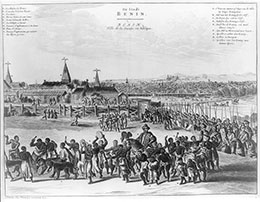
The history of Nigeria can be traced to prehistoric settlers living in the area as early as 11,000 BC. Numerous ancient African civilizations settled in the region that is today Nigeria. Examples of the civilizations that settled in Nigeria are the Benin Empire, Nri Kingdom and Oyo Empire. Islam reached Nigeria through the Hausa States during the 11th century. The Songhai Empire also occupied part of the region. Lagos was captured by British forces in 1851 and formally annexed in 1861. Nigeria became a British protectorate in 1901. Colonization lasted until 1960, when an independence movement succeeded in gaining Nigeria its independence.
Nigeria first became a republic in 1963, but succumbed to military rule in 1966 after a bloody coup d'état. A separatist movement later formed the Republic of Biafra in 1967, leading to the three-year Nigerian Civil War. Nigeria became a republic once again after a new constitution was written in 1979. However, the republic was short-lived, when the military led by Major General Muhammadu Buhari seize again four years later. Buhari was overthrown and a new republic was founded in August 1993, but was dissolved once again by General Sani Abacha in November that same year. Abacha died in 1998 and a fourth republic was later established the following year, ending three decades of intermittent military rule.
Politics
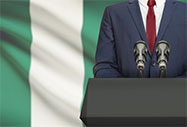
From the early 19th century, Hausa states in the north were ruled by strong Islamic leaders such as Muhammad Bello (in the west) and Muhammad al-Kanemi (in the east). Further south, states began focusing on palm as the slave trade declined.
To put an end to the slave trade (which Britain outlawed from 1807) and gain control of the region, the British began annexing parts of Nigeria, such as Lagos in 1861 and regions along the Niger River. These southern areas were claimed by Britain at the Berlin Conference in 1884-5.
By 1906, Britain had virtually taken the whole region, dividing it into Southern and Northern Nigeria. These were brought together in 1914
After World War II, the nationalist movement grew. Nigeria was granted independence by Britain in 1960. The country became a republic with a central federal government (responsible for national issues, the police and army) and three semi-autonomous regions – Northern, Western and Eastern. A fourth region – the Mid-West – was created in 1964.
This regional structure caused conflicts, as leaders from different ethnic regions vied for power at the central government level. These conflicts led to a military takeover in 1966. For the next 30 years, Nigeria’s history involved a series of army interventions, coups and military-led governments
In 1999, civilian rule returned and a new constitution was adopted. This is based on a greater number of states (currently 36) and presidential rule, similar to the political set-up of the United States.
In 1999, Olusegun Obasanjo, the former military ruler and a Christian from the south was elected President. In the same year, the 12 northern and largely Muslim states introduced the Sharia penal code and outbreaks of violence between Muslims and Christians in northern cities such as Kano left thousands dead.
Economy
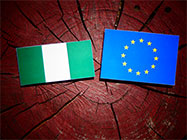
As of 2015, Nigeria is the world's 20th largest economy, worth more than $500 billion and $1 trillion in terms of nominal GDP and purchasing power parity respectively. It overtook South Africa to become Africa's largest economy in 2014. The 2013 debt-to-GDP ratio was 11 percent. Nigeria is considered to be an emerging market by the World Bank. It has been identified as a regional power on the African continent, a middle power in international affairs, and has also been identified as an emerging global power. Nigeria is a member of the MINT group of countries, which are widely seen as the globe's next "BRIC-like" economies. It is also listed among the "Next Eleven" economies set to become among the biggest in the world. Nigeria is a founding member of the African Union and a member of many other international organizations, including the United Nations, the Commonwealth of Nations and OPEC.
Agriculture
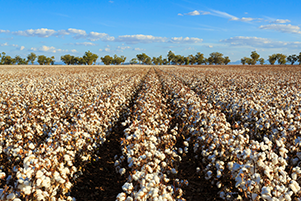
As of 2010, about 30% of Nigerians are employed in agriculture. Agriculture used to be the principal foreign exchange earner of Nigeria.
Major crops include beans, sesame, cashew nuts, cassava, cocoa beans, groundnuts, gum arabic, kolanut, maize (corn), melon, millet, palm kernels, palm oil, shea butter, plantains, rice, rubber, sorghum, soybeans and yams. Cocoa is the leading non-oil foreign exchange earner. Rubber is the second-largest non-oil foreign exchange earner.
Prior to the Nigerian civil war, Nigeria was self-sufficient in food. Agriculture has failed to keep pace with Nigeria's rapid population growth, and Nigeria now relies upon food imports to sustain itself. The Nigerian government promoted the use of inorganic fertilizers in the 1970s.
State budget

Nigeria’s state budget for 2017 is: N7.298tn (trillion).
